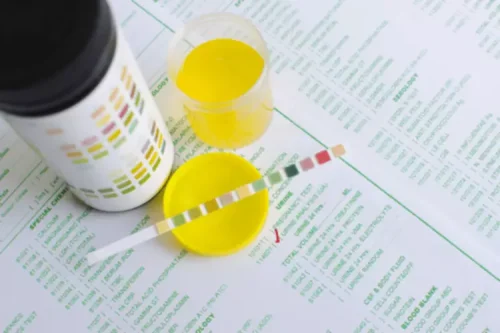Alcohol use disorder tied to development of chronic kidney disease: A nationwide database analysis PMC

One way in which alcohol directly affects the kidneys is by altering the form and structure of this pair of organs, as demonstrated by various animal studies. For example, in an early study on dogs (Chaikoff et al. 1948), investigators observed several striking alterations after chronic alcohol administration. The basement membrane of the glomerulus (see sidebar figure) became abnormally thickened and was characterized by cell proliferation.
Effect of alcohol consumption on kidney function: population-based cohort study
The World Health Organization estimates that more than 55% of adults consume alcohol, and 140 million people worldwide have alcoholism [1,2]. In fact, alcoholism is a serious problem in Asia, where 10.6–23.67% of men and 1.84–5.3% of women have a history of excessive alcohol consumption [3–9]. However, if you manage the problem early on, you can work on preventing a kidney condition to develop. Our team includes highly experienced medical personnel can assist in supplying the needed information and care during detoxification. And once you’re cleansed from the physical effect of alcohol in your blood, we will help you rebuild your self as a sober person with no danger to your kidneys.
Alcoholic Cardiomyopathy: Another Potential Confounder
A high alcohol intake may also increase the risk of other problems that can hurt the kidneys, such as a urinary tract infection, high blood pressure, and long-term kidney damage. Alcohol affects the kidneys’ ability to keep the correct balance of water and electrolytes in the body. This leads to impaired function of the kidneys and increases the risk of developing kidney stones. Excessive alcohol consumption can have profound negative effects on the kidneys and their function in maintaining the body’s fluid, electrolyte, and acid-base balance, leaving alcoholic people vulnerable to a host of kidney-related health problems.
Kidney Failure and Alcohol Consumption
Even higher risk of kidney problems has been found for heavy drinkers who also smoke. Smokers who are heavy drinkers have about five times the chance of developing CKD than people who don’t smoke or drink alcohol to excess. The Centers for Disease Control estimates that most American adults (two out of three) drink alcohol. Too often, some of these regular drinkers have more than five drinks at one time. In fact, about a quarter of drinkers reported they had done this on at least one day in the past year. “Binge” drinking has harmful effects on the kidney that can even lead to acute kidney failure.
Under these conditions, the urine formed is dilute and electrolyte concentration in the blood simultaneously rises. Although increased serum electrolyte concentration normally activates secretion of ADH so that fluid balance can be restored, a rising blood alcohol level disrupts this regulatory response by suppressing ADH secretion into the blood. The kidneys continuously perform their tasks of purifying and balancing the constituents of the body’s fluids.
- So, alcohol consumption can be a double-edged sword for patients with CKD, and any policy regarding alcohol consumption for them must be very cautious.
- The patient had stolen seven 475-mL bottles of hand sanitizer and consumed one and a half in the past 4-6 hours.
- Alcohol can impact many different parts of the body, but most commonly it damages the liver and can lead to a condition called cirrhosis.
- For these reasons, it’s natural that when your kidneys have to work extra hard to rid the body of excess alcohol, you may experience pain.
- Nevertheless, before rats received large doses of ethanol in their drinking water, they had a 3-week transition period with low concentrations of ethanol [37].
How Drinking Alcohol Affects Your Kidneys
Heavy drinking can also cause liver disease, which makes your kidneys have to work harder. When you have liver disease, your body doesn’t balance the flow and filtering of blood as well as it should. This has a harmful effect on your overall health and can increase the chance of complications. Kidneys that have been overworked due to excess alcohol consumption don’t function properly. This makes them less able to filter blood and maintain the correct water balance in the body. The hormones that control kidney function can also be adversely affected.
Effects of Ethanol on the Kidneys
Therefore, the effect of ethanol on renal antioxidant capacity varies with the concentration of ethanol and the duration of stimulation. In general, ethanol causes oxidative stress-related damage in the kidneys, but sometimes, in some conditions, it also improves the antioxidant capacity of the renal cells. Unfortunately, we only know that low-concentration ethanol can improve renal antioxidant capacity, does alcohol affect your kidneys but the exact dose and period are still unclear. The NKF explains that chronic drinking can cause liver disease, which impairs the rate of blood flow to the kidneys. The organization adds that regular heavy drinking can lead to CKD and that this type of kidney disease does not resolve with time. A 2018 study found that having alcohol use disorder increased the likelihood of having a new diagnosis of CKD.
Alcohol and other health risks
- Hepatorenal syndrome may appear in patients afflicted with any severe liver disease, but in the United States, studies most often have identified alcoholic cirrhosis as the underlying disorder.
- They can pose a problem, especially for emergency departments, when alcohol-dependent patients start drinking them.
- Chronic alcohol consumption is a well-known risk factor for tissue injury.
- CKD ascertainment in NHIRD database using ICD-9-CM code was validated in a previous published article [24, 25, 26].



